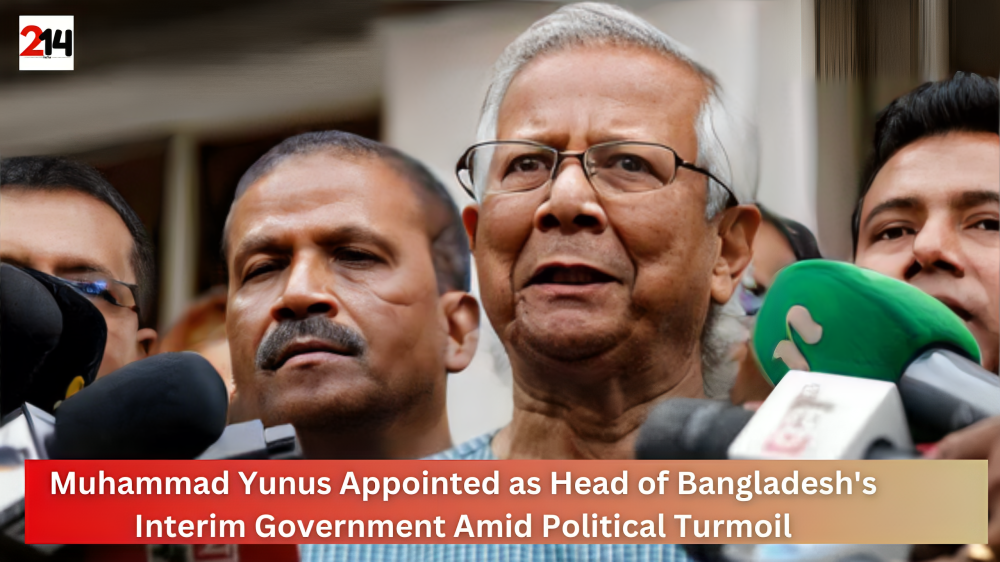
In a significant political development, Muhammad Yunus, a Nobel laureate renowned for his work in microfinance, has been appointed as the head of Bangladesh’s interim government. This appointment comes at a critical juncture following the resignation of Prime Minister Sheikh Hasina, who fled the country amid widespread protests and violence.
Background of the Appointment
The appointment of Yunus was confirmed by President Mohammed Shahabuddin after extensive discussions with political leaders, military chiefs, and civil society members. The decision follows weeks of intense protests that began with dissatisfaction over a quota system for government jobs but soon escalated into a broader demand for Hasina’s resignation due to allegations of corruption and human rights abuses during her 15-year tenure.
Role and Responsibilities of Yunus
Yunus, a vocal critic of Hasina, is expected to lead the country through this transitional period. His primary responsibility will be to ensure a fair and transparent electoral process, free from military or partisan interference. Yunus is expected to return from Paris, where he has been advising on Olympic preparations, to assume his new role.
Challenges Ahead
The interim administration under Yunus faces several significant challenges. Restoring law and order, addressing economic instability, and protecting minority communities who fear targeted violence are immediate priorities. The violent response to protests has already resulted in over 300 deaths, highlighting the urgent need for effective governance and reconciliation.
Additionally, Yunus’s government will need to gain the trust of both the local population and the international community. The appointment comes after the dissolution of Parliament, paving the way for new elections aimed at restoring democratic governance.
Political and Social Implications
The resignation of Hasina and the subsequent appointment of Yunus signify a substantial shift in Bangladesh’s political dynamics. The unrest, which included violent clashes and significant casualties, has created a power vacuum that Yunus’s leadership aims to fill. The transition period is expected to focus on establishing a stable and inclusive political environment conducive to free and fair elections.
The international community is closely monitoring the situation, emphasizing the importance of a peaceful transition that respects human rights and democratic values. The swift appointment of Yunus is seen as a crucial step in preventing further destabilization and ensuring a stable future for Bangladesh.
Conclusion
Muhammad Yunus’s leadership as the head of Bangladesh’s interim government represents a critical step in addressing the country’s recent political turmoil. His role will be pivotal in guiding the nation through this transitional period and ensuring the integrity of the upcoming electoral process. The coming weeks will be essential in determining the future stability and political landscape of Bangladesh.
High Alert Continues at India-Bangladesh Border Amidst Political Unrest

